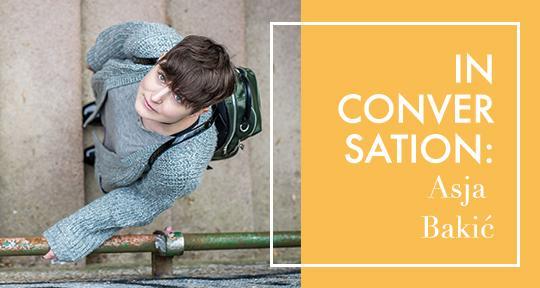Asja Bakić’s short-story collection Mars, translated by Jennifer Zoble, is slated for release by the Feminist Press in March of 2019. Though she’s a prolific poet, short-story writer, translator, and blogger in the former Yugoslavia, Mars will be her first publication in English. Bakić grew up in a turbulent Tuzla, Bosnia, lives now in Zagreb, Croatia, and laments the limitations that national borders place on literary exchange. The twists and turns in her speculative narratives leave readers suspended in a heady no-man’s-land between Earth, Mars, and the moon; life, death, and purgatory. Bakić speaks with Asymptote’s Assistant Editor Lindsay Semel about translation, Eros in literature, and the proliferation of ideas.
Lindsay Semel (LS): You often participate in literary events around the former Yugoslavia and Eastern Europe. Can you tell me about what you’re seeing there? What interests or bothers you? What trends are emerging? Which voices are notable? How is it different for you, interacting in virtual and physical spaces as an artist?
Asja Bakić (AB): Well, I am seeing my friends. We all know each other. Most of us were born in the same country in the eighties; the language is still the same if you ask me. It doesn’t matter if I go to Belgrade, Novi Sad, Skopje or Tuzla—it feels like home. The problem is that the crude political divide doesn’t let us read each other the way we should. I try to pay attention to what is published in Serbia, Bosnia, and Montenegro, but I fail miserably. The borders do not let books go through, so you have a Croatian author who must publish their book in the same language three times—for the Serbian, Bosnian, and Croatian markets, which is ridiculous. We have four versions of Elena Ferrante. Do we really need to publish the same book repeatedly? Wouldn’t it be better if we were to translate and publish different and new voices? That is why I prefer the internet. You find your friends there, you read each other, you comment—it is livelier. The internet is more real nowadays, because it doesn’t try to deny common ground.
READ MORE…


